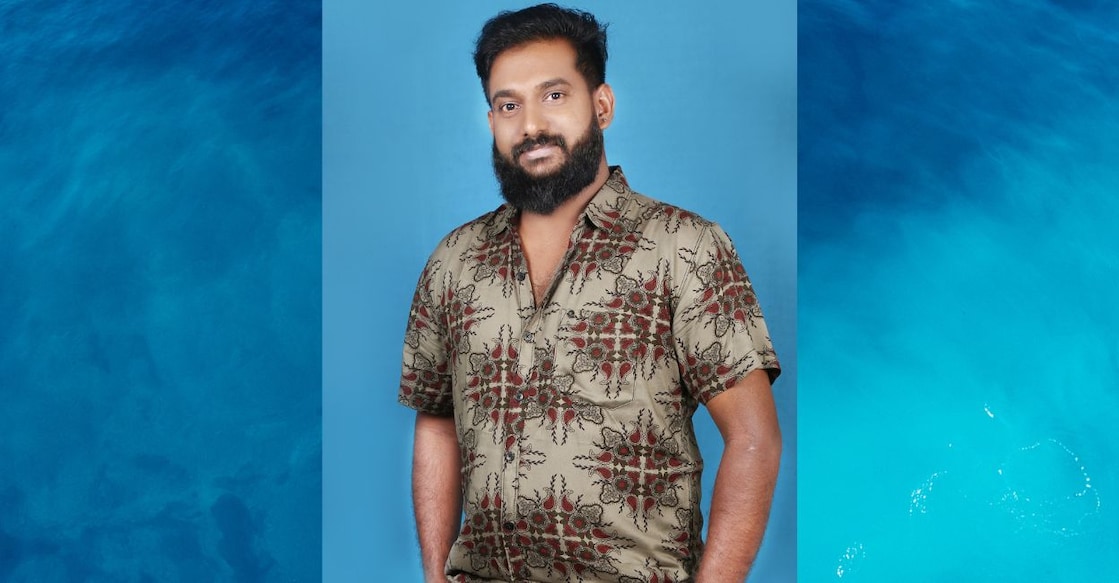How a CPM branch secretary shed 12kg in three months to donate kidney to a stranger

Mail This Article
Kalpetta: Manikandan M R (34) is a celebrated resident in his village, Pulpally, in the hill district of Wayanad. Jayasree Higher Secondary School at Kalanadi Koli, his alma mater, invited and felicitated him.
SNDP Yogam Arts And Science College at Pulpally, where he did not study, organised an event to honour him. So did Pulpally's Kripalaya Special School for children with intellectual disabilities. The CPM also felicitated Manikandan, who is the secretary of the Pallippadi branch, the party's primary unit.
Manikandan gave up his kidney for a total stranger -- a single mother of two young children. The 37-year-old woman from Kozhikode district has been undergoing dialysis every week for the past six years.
"You don't have to know a person to help save their life. All you need is the will to help," he said, returning from the school.
He has been expecting a call asking for his organ for the past eight years. He had given his consent to donate his organs at a full-body medical checkup camp organised by the Democratic Youth Federation of India (DYFI), the CPM's youth organisation, at Pulpally in 2014. "Since then, I have given my consent to donate my organs every time I donate blood," says Manikandan. "So I am not sure where she got my number from," he says.
The law prohibits him from revealing the identity of the recipient.
Last June, her brother contacted him asking if he was willing to donate his kidney. Her story moved Manikandan and he said yes before ending the call.
His parents Maheshwari Rajendran (58) and Rajendran M N (64) shuddered at the thought of their unmarried son giving up his kidney.
After Class XII, Manikandan did a diploma course in fashion design. Later he started a business supplying fabrics to textile shops across Kerala. The Covid pandemic killed the venture.
But Manikandan had no second thoughts. "I am unmarried. So I had to convince only two people," he said.
Over the years, he had attended several classes to rattle out the functions of the kidney and how one can survive with just one bean. But he had another ace up his sleeves: Kochouseph Chittilappilly (72), founder and chairman emeritus of V-Guard Industries Ltd. In 2011, when Chittilappily was 60 years old, the business tycoon too had donated his kidney to a truck driver, again a stranger. He donated the kidney on the condition that the driver's wife would be a donor to another kidney patient. Chittilappily wanted to start a new chain of living donors of organs.
"I showed my parents a couple of videos of Chittilappilly speaking on organ donation. In two days, they were with me," Manikandan says.
That was the easy part. After that, he had to undergo a series of tests to find he had healthy kidneys, and that he would survive with one. The third part was to find if he was biologically compatible with the recipient.
Transplant surgeons look for three matching criteria: blood type, tissue type, and cross-matching.
Tissue typing is also called HLA or human leukocyte antigen typing.
Of the more than 100 antigens in the cells of the body, six have been identified as the most important for transplanting organs. They are A, B, and DR antigens. A six-on-six is a perfect match. Lesser matching ratios are also acceptable.
Five months after the woman's brother contacted him, Manikandan was selected as a potential donor. But doctors found he was slightly overweight (90kg) and had a fatty liver.
They put him on a diet with the instruction to go for a walk every day. "I lost 12kg in three months," Manikandan said.
It was not tough, he said. He did not touch fried meat and vegetables. "Beef was a no. Biryani too," he said.
Manikandan did not go to a restaurant either. "I could not afford to fall sick or gain weight," he said.
Every day, he walked 1km in the morning and 1km in the evening and drank three litres of water.
The transplant surgery was scheduled on March 30. But the recipient's condition worsened and the doctors advanced the date. Manikandan was ready.
On February 3, he checked into a super-speciality hospital in Kochi. His father Rajendran was by his side.
The doctors did the last test: crossmatching. "It is done to check if the recipient's antibodies will attack the donor's. They did not," says Manikandan.
On February 5, Manikandan and the recipient were stretchered into the operation theatre. "It was a major operation. I went in at 8 am and regained consciousness only around 2 pm the next day," he said.
Doctors said the transplant was a success. The surgery was expensive. "She raised the money by crowdsourcing," he said.
Around 1.8 lakh persons suffer from renal failure every year, however, the number of renal transplants done is around 6,000 to 9,000, according to the National Organ Transplant Programme.
A doctor at another Kochi-based private hospital that does up to five kidney transplants a week said most of the organs come from living donors in India.
In 2021, India did 9,105 kidney transplants, that is 6.53 per million inhabitants, according to the Global Observatory on Donation and Transplantation (GODT).
The global average was 15.44 per million that year.
Of the 9,105 kidney transplants, 8,275 (5.94 per million) were living donors and 830 (0.6 per million) were deceased donors.
Globally, deceased donors are more (9.57 per million) than living donors (5.87).
India's organ donation rate is one of the lowest in the world. In the US, 32 persons per million donate organs. In Spain, 47 per million donate organs.
"The huge gap between the number of donors and the number of recipients pave the way for the sale and buying of organs," said Manikandan. "That means only the rich can afford a transplant," he said.


